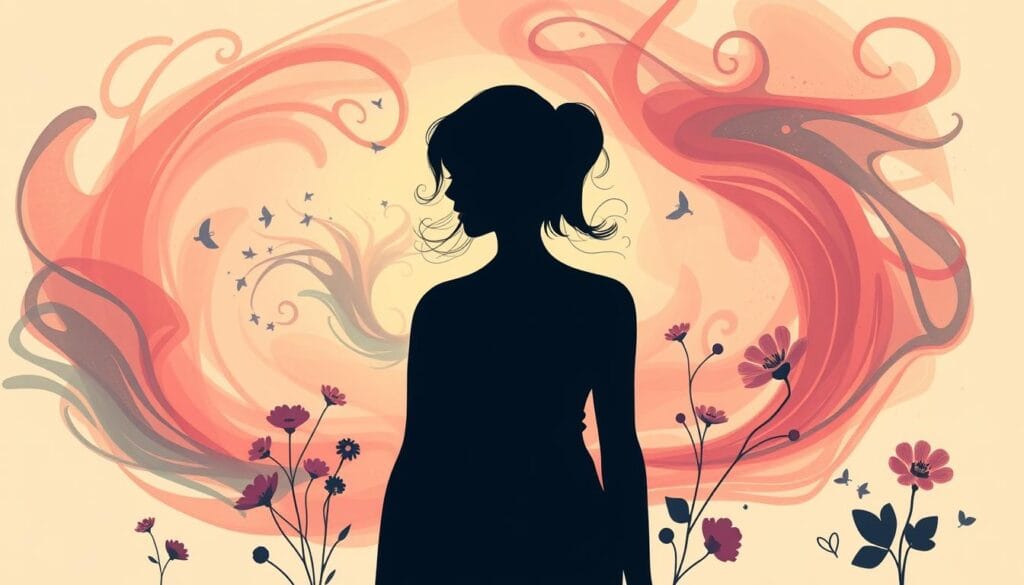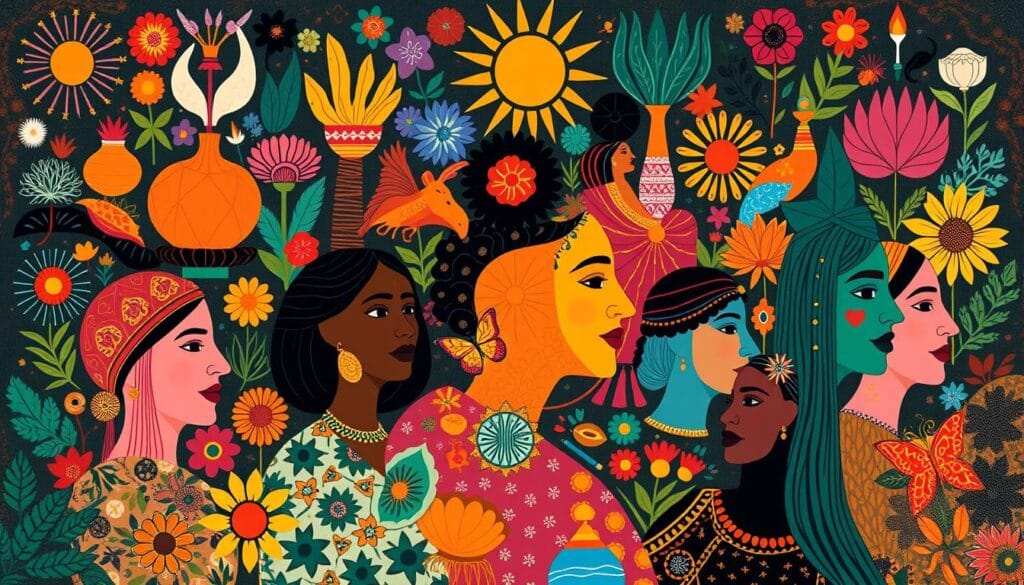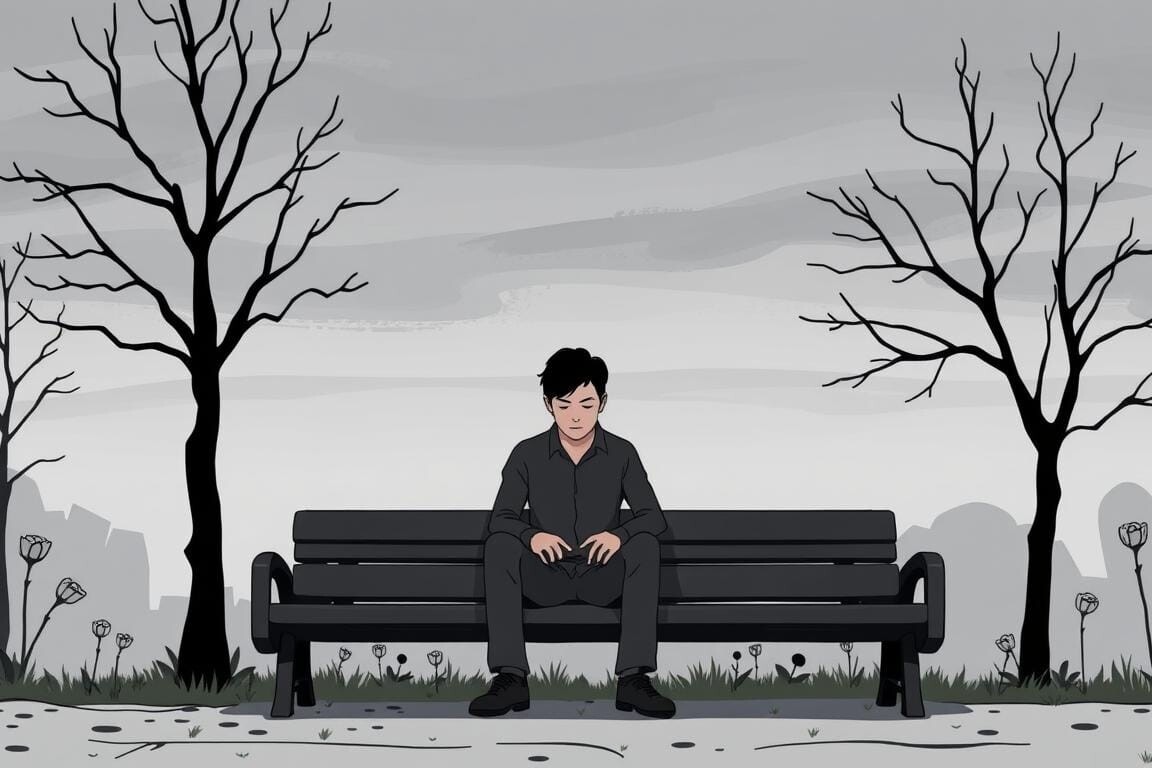Being a new mom can bring both joy and challenges. One big issue many face is postpartum depression rage. This condition makes moms feel very angry, irritable, and frustrated. It can really hurt a mom’s happiness and her bond with her baby.
Dr. Chandril Chugh, a top expert in maternal mental health, will talk about postpartum depression rage. You’ll learn more about how common mental health issues are in women. You’ll also see how society’s stigma and barriers stop women from getting help. By understanding this crisis better, we can help support moms’ mental health more.
Table of Contents
ToggleThe Overlooked Crisis of Women’s Mental Health
Women’s mental health is often ignored, despite the big challenges they face. Studies show that 1 in 5 women deal with a mental illness, compared to 1 in 8 men. These issues can deeply affect their relationships, work, and life quality.
But, women often face stigma and barriers that stop them from getting the care they need.
Prevalence and Impact of Mental Health Issues in Women
Mental health problems in women are widespread. In the United States, about 400,000 women struggle with mood changes after having a baby. The ‘baby blues’ affect up to 80% of new moms.
Major depressive disorders cause up to one-third of all deaths by suicide. Women try to take their own lives four times as often as men.
Societal Stigma and Barriers to Accessing Care
Women with mental health issues often face stigma and barriers to care. Stigma is a big problem that stops women from seeking help for mental health issues like postpartum depression.
Money problems, lack of transportation, and not knowing where to find help also block women’s access to mental health services.

The crisis of women’s mental health needs urgent action. We must tackle the prevalence of mental health issues, reduce stigma, and make care more accessible. This way, we can help women focus on their well-being and overcome their challenges.
Together, we can build a supportive and inclusive space for women to succeed.
Common Mental Health Challenges Faced by Women
Women often face unique mental health struggles. These can greatly affect our daily lives. Anxiety and depression are two big issues. Women are nearly twice as likely to have these problems as men.
Anxiety and Depression: Higher Rates Among Women
Hormonal changes can lead to women’s anxiety and women’s depression. Social pressures and expectations also play a big role. These can make it hard for women to manage stress and personal life.
Trauma, Stress, and Post-Traumatic Stress Disorder
Women are more likely to face traumatic events. This includes gender-based violence and domestic abuse. These experiences can lead to post-traumatic stress disorder (PTSD) and other stress-related disorders.
Understanding the impact of trauma and PTSD in women is key. It helps us address the unique mental health needs of women. By doing so, we can improve well-being and mental health equality.

Exploring Mental Health Complexities in Women
Women’s mental health is complex, influenced by biology, psychology, and society. It’s important to understand these factors to help women feel better.
Hormones change a lot in women’s lives. These changes can affect their mood and feelings. For example, many women feel sad during pregnancy or after having a baby.
Society also affects women’s mental health. They face stress from work and family, and feel pressure to meet expectations. This can make them feel anxious or sad.
Feeling alone can also hurt a woman’s mental health. A study in the UK showed new moms often feel lonely. Women from different backgrounds who struggled with depression talked about feeling isolated.
Knowing about women’s mental health helps us find better ways to support them. We can address the biological, social, and cultural factors that affect them.

Gender-Specific Risk Factors and Stressors
Women often face unique challenges that can affect their mental health. Conflicts in family, romantic, and social relationships can cause stress and anxiety. The heavy caregiving burden and work-life balance demands can also lead to burnout and mental health issues.
Interpersonal Conflicts and Relationship Dynamics
Women’s mental health is influenced by their relationships and social connections. Conflicts in these areas can be a big risk factor and source of stress. These issues can make women feel isolated, inadequate, and emotionally troubled, worsening their mental health.
Caregiving Responsibilities and Work-Life Balance
Women often carry a heavy load of caregiving duties. This can include caring for children, elderly parents, or family members with disabilities. This caregiving burden can be overwhelming and disrupt work-life balance, causing stress, burnout, and mental health problems.
It’s important to address these gender-specific risk factors. Supporting women in these challenges is key to promoting their mental health and overall well-being.
Cultural and Ethnic Perspectives on Women’s Mental Health
Your mental health is tied to your community’s culture. In some places, mental illness is seen as weakness. This makes it hard to get the help you need.
Some ethnic groups show mental health issues as physical symptoms. This is called somatization. It’s tough for doctors to find and treat the real mental health problems.
Influence of Cultural Norms and Beliefs
Your culture shapes how you see mental health. Studies show many communities still stigmatize mental illness. This makes people think it’s a personal flaw, not a health issue.
This thinking makes it hard to admit and deal with your mental health.
Somatization and Manifestation of Mental Health Issues
In some ethnic groups, mental health shows up as physical symptoms. This is called somatization. It’s hard for doctors to find and treat the real mental health problems.
Research shows somatization is a way to show mental distress. Doctors need to know about this to help better.
It’s key to understand cultural and ethnic views on women’s mental health. This helps get more care and support. Doctors must be aware and work to break down stigma and misunderstandings.

The Impact of Discrimination and Gender-Based Violence
Gender discrimination and violence, like domestic abuse and sexual assault, hurt women’s mental health a lot. These issues can cause serious problems, like PTSD, depression, and anxiety. Even postnatal depression is linked to violence by a partner during pregnancy.
A study found a strong connection between domestic violence and mental health problems during pregnancy. The World Health Organization’s study showed how common domestic violence is and its bad health effects. It also found that emotional and physical violence during pregnancy can harm both mom and baby even a year later.
Violence by a partner during pregnancy can lead to bad health outcomes in Vietnam. Emotional abuse can make women depressed. Studies have looked at how common and what causes postpartum depression in different cultures, including Vietnam.
We need to tackle the big issues of discrimination and violence against women. By fixing these problems and helping survivors, we can make a better place for women’s mental health.
Addressing Mental Health Needs Across the Lifespan
Women’s mental health changes as they age. In their teens, girls often deal with anxiety, depression, and body image issues. Pregnancy and the time after having a baby are also key times for their mental health.
Many new moms face postpartum depression and rage. These issues can harm them and their babies if not treated.
Adolescent Mental Health and Body Image Concerns
Adolescence is tough for young women’s mental health. They often feel anxious and depressed because of society’s high standards and body ideals. It’s important to help them early on.
We need to give them tools to handle stress and build a good self-image.
Perinatal Mental Health and Postpartum Depression Rage
The time before and after having a baby is full of big changes for women. Postpartum depression affects 10 to 20 percent of new moms. It can hurt the bond between mom and baby.
Some moms also face postpartum depression rage. This is hard to deal with but needs help from experts.
It’s vital to help women with their mental health at every stage of life. We can do this by offering support and resources. This way, we help them face life’s challenges and take care of their mental health.
Strategies for Promoting Mental Well-Being in Women
Women face many mental health challenges. But, there are ways to improve mental well-being. It’s all about self-care and managing stress. This helps women take charge of their mental health.
Importance of Self-Care and Stress Management
Self-care is key to feeling good. It includes activities like exercise, meditation, and journaling. Taking time for yourself each day can make a big difference.
Managing stress is also vital. Deep breathing, muscle relaxation, or talking to a therapist can help. Finding the source of stress and dealing with it is important.
- Incorporate daily self-care routines, such as yoga, reading, or spending time in nature.
- Explore mindfulness and meditation practices to cultivate inner calm and clarity.
- Seek professional help from a therapist or counselor to manage stress and develop personalized strategies.
- Prioritize getting enough sleep, a key factor in maintaining mental well-being.
- Surround yourself with a supportive network of family, friends, or community groups.
By focusing on women’s mental health strategies, self-care, and stress management, women can improve their mental health. This leads to a healthier, more balanced life.
Conclusion
Women’s mental health is very important. We need to understand their unique challenges. This way, we can help them feel supported and included.
We should tackle the stigma and barriers to care. We also need strategies for different life stages. The goal is to help women take care of their mental health.
Women face many challenges, like postpartum depression rage. They also deal with anxiety, depression, and trauma. They need the support and resources they deserve.
By focusing on gender-specific risks and cultural factors, we can help. This will lead to a healthier society for everyone.
Your mental health is as important as your physical health. Seek help when you need it. Practice self-care and surround yourself with support. Together, we can make a difference.
FAQ
What is postpartum depression rage?
Postpartum depression rage is a serious mental health issue. It affects many new mothers. It’s a mix of postpartum depression and intense anger or irritability.
How common are mental health issues among women?
Studies show 1 in 5 women face mental illness. This is compared to 1 in 8 men. Women are nearly twice as likely to have anxiety and depression.
What are the common mental health challenges faced by women?
Women are more likely to face anxiety, depression, and PTSD. This is due to biological, psychological, and societal factors.
How do gender-specific risk factors impact women’s mental health?
Stress from interpersonal conflicts, caregiving, and work-life balance affects women. These factors contribute to their mental health challenges.
How do cultural and ethnic perspectives influence women’s mental health?
In some cultures, mental illness is seen as weakness. This makes it hard for women to seek help. Some ethnic groups show mental health issues physically, making diagnosis tough.
What is the impact of discrimination and gender-based violence on women’s mental health?
Gender discrimination and violence can cause serious mental health issues. This includes PTSD, depression, and anxiety.
How can women’s mental health needs be addressed across different life stages?
Mental health strategies should vary by life stage. For example, addressing anxiety and body image in teens. Supporting new mothers with postpartum depression and rage.
What are effective strategies for promoting mental well-being in women?
Self-care and stress management are key. Seeking support from healthcare, loved ones, and community resources also helps. These actions improve mental health and well-being.
Source Links
- Best Neurologist In Patna, Author Dr Chandril Chugh
- Postpartum depression | Office on Women’s Health
- Digital Health Needs of Women With Postpartum Depression: Focus Group Study
- House Subcommittee Examines Postpartum Depression – Women’s Congressional Policy Institute
- Postpartum Rage: Symptoms, Diagnosis & Treatment
About The Author

Medically reviewed by Dr. Chandril Chugh, MD, DM (Neurology)
Board-Certified Neurologist
Dr. Chandril Chugh is a U.S.-trained, board-certified neurologist with expertise in diagnosing and managing neurological disorders, including migraines, epilepsy, Parkinson’s disease, and movement disorders. His clinical focus includes evidence-based neurological care and patient education.
All content is reviewed for medical accuracy and aligned with current neurological guidelines.




